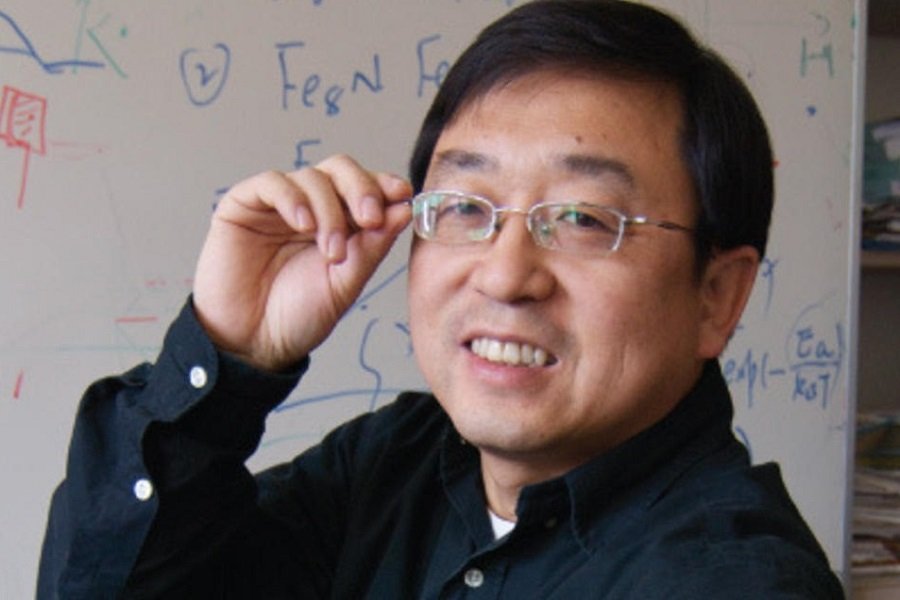Professor Jian-Ping Wang to be inducted fellow of National Academy of Inventors

Distinguished McKnight University Professor and Robert F. Hartmann Chair
Jian-Ping Wang has been elected as Fellow of the National Academy of Inventors (NAI). The NAI Fellows Selection Committee has made the decision based on Wang’s “highly prolific spirit of innovation in creating or facilitating outstanding inventions that have made a tangible impact on the quality of life, economic development, and welfare of society.” Besides serving as ECE faculty, he is also director of the University’s Center for Spintronic Materials for Advanced Information Technologies (SMART) supported by the Semiconductor Research Corporation (SRC).
Conferral of NAI Fellow status is the highest professional distinction accorded solely to academic inventors who have demonstrated a prolific spirit of innovation in creating or facilitating outstanding inventions that have made tangible economic, societal, and quality of life impacts.
Reacting to his election Wang says, “I am very grateful to be recognized and inducted into NAI which holds the highest standards for academic inventors. I really think we, as researchers and educators, could do more to help our society through creating new things."
Inventions and innovations
The election as NAI fellow is a well-deserved recognition of Wang’s contributions to his fields of expertise: nanostructured magnetic materials and nanoscaled spintronic devices. His first experimental demonstration on exchange coupled composite media (ECC) has doubled recording areal density, and has been particularly impactful in hard disk drive (HDD) technology. HDDs form the backbone of data storage centers, and Wang’s research has helped reduce the number of data centers by half which has in turn dramatically reduced energy consumption worldwide.
Wang’s research has resulted in new methods for the synthesis of rare earth free iron nitride magnets, which led to the creation of the Minnesota-based startup Niron Magnetics Inc., a $40 million investment with 20 employees. Rare earths with their unique magnetic properties have an important role to play in green technologies such as electric vehicles and wind generators. However their limited supply and high costs have entailed the development and use of an alternative technology. Wang’s rare earth free iron nitride magnet technology fulfills these criteria; it promises to be less expensive and more sustainable, and therefore suitable for widespread use.
Wang is also the inventor of novel magnetic tunnel junction (MTJ) structures and spintronic materials/devices, both of which have been deployed, and are being actively explored for magnetic memory and spintronic computing applications. His MTJ fixed layer structures have been licensed to Micron Inc. and Intel Inc. among others, and are being used in their STT-RAM (spin transfer torque random access memory) products. He is also the inventor of Computational Random Access Memory (CRAM) for memory-centric computing, which could address memory-centric computing needs in artificial intelligence applications.
His research has also resulted in critical contributions to the area of biomedical technology. Wang's invention of high-moment magnetic nanoparticles and large-areal magnetic biosensors have medical applications such as early disease detection and onsite diagnostics, and have led to the establishment of startup companies Zepto Life Technology, and Universal Magnetic Systems.
A prolific inventor, Wang holds 65 patents. of which 39 have been licensed to Micron Inc. and Intel Inc. through the Defense Advanced Research Projects Agency spin-transfer torque random access memory (DARPA STT-RAM) program, Seagate Technologies through the Center for Micromagnetics and Information Technologies (MINT) consortium, and the SRC's STARnet, JUMP and nCORE programs.
As a researcher and educator, Wang has published more than 300 peer-reviewed articles and seven book chapters. He has supervised 34 doctoral theses and 12 postdoctoral scholars, and is keenly aware of the support he has received from them as collaborators in his inventive journey.
Recognizing their contribution, Wang says, "I would like to thank all my wonderful students and postdoctoral fellows working in my lab and my outstanding collaborators throughout the years. Without them, many ‘wild’ ideas wouldn’t have panned out and been demonstrated for practice."
The Fellows Induction Ceremony will take place at the NAI Annual Meeting in June 2022 in Phoenix, Arizona. With this recognition, Wang will join the ranks of five University of Minnesota faculty who are Fellows of the NAI, including professors Keshab Parhi (inducted in 2021) and Georgios Giannakis (inducted in 2019) from ECE and three others from the University's College of Science and Engineering.
Professor Jian-Ping Wang joined the University of Minnesota Twin Cities in 2002, and is the recipient of several awards and honors that recognize his research contributions. His most recent awards include Fellow of the American Physical Society (2020), the SRC Technical Excellence Award (2019), and Fellow of the IEEE (2014). He is also the director of the Center for Spintronic Materials for Advanced Information Technologies (SMART), one of the SRC nCORE programs. Learn more about his interests at his Nanospin research site.